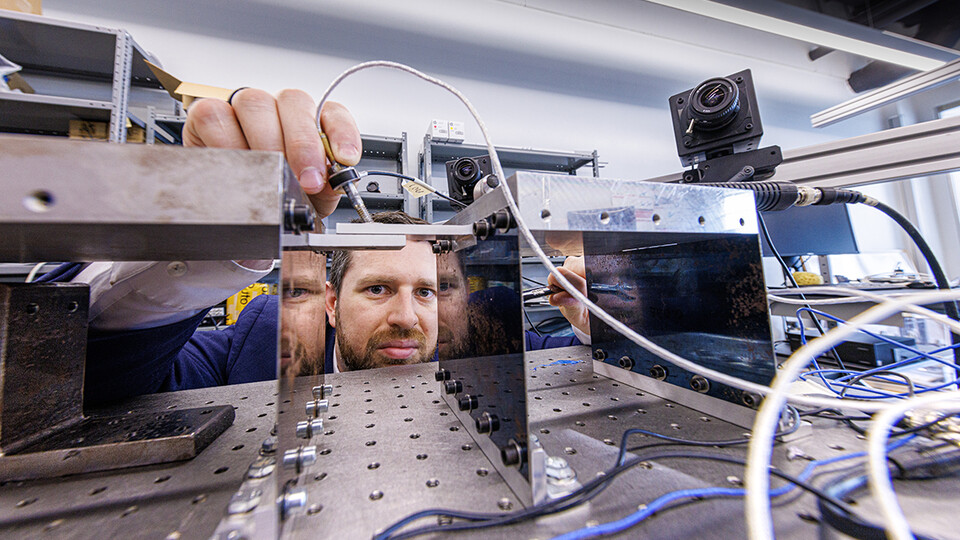Calendar Icon
Jun 09, 2023
![]() RSS
Submit a Story
RSS
Submit a Story

RELATED LINKS
Despite the ubiquity of bolts and screws in infrastructure of all types, Keegan Moore said, little is understood about how a structure’s dynamics, including vibrations, can influence their loosening during normal operation.
Moore's research, which focuses on how rotational loosening happens and how it might be prevented, will be supported with a five-year, $727,410 grant from the National Science Foundation’s Faculty Early Career Development Program.
“Bolt and joint loosening has been studied since the Industrial Revolution because it’s been a problem since then,” said Moore, assistant professor of mechanical and materials engineering. “Loose bolts aren’t just to blame for high-profile catastrophes; they’re a threat in everyday life, from playground equipment and cars to biomedical implants and the James Webb Space Telescope.”
Submit a Story